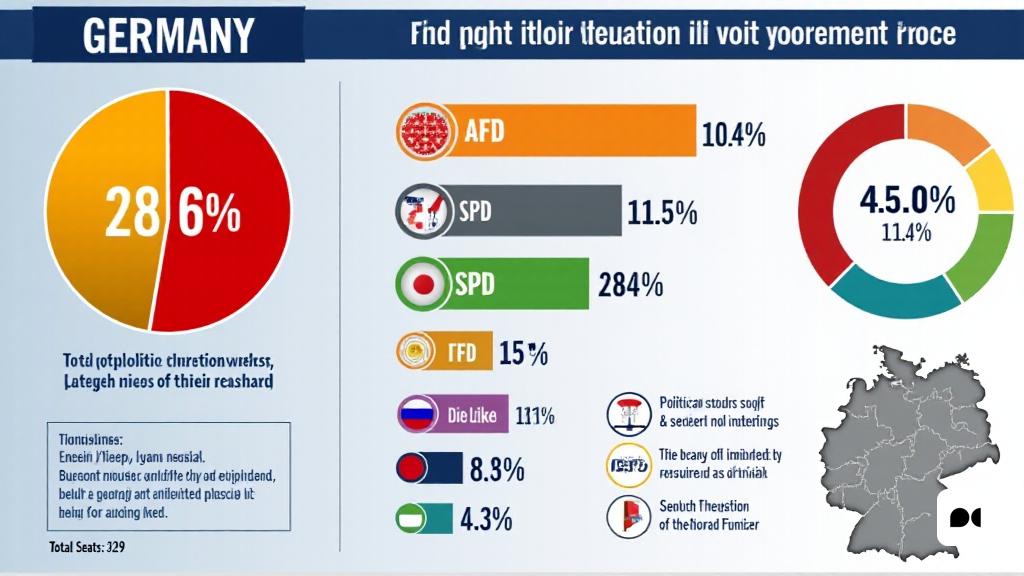Electoral results: a new panora
The recent election has revealed a significant change on the German political map. The CDU/CSU has obtained 28.6% of the vote, an increase of 4.5 points compared to the previous election, but below the expectations provided for a support of 30%. This results in 208 seats, about 12 more than in the past.
The rise of the alternative for Germany
The AfD has managed to capture the support of 20.8% of the electorate, consolidating itself as the second political force and overcoming the traditional Social Democratic Party. This formation has experienced a spectacular jump, from 77 to 151 seats, reflecting a variation of +10.5 points.
The fall of the Social Democrats
The SPD has experienced a true debacle, with a drastic descent to 16.4% of the vote, marking a decrease of 9.3 points and its worst result since the German unification. This situation has left them with only 125 deputies, a loss of 85 seats.
THE FUTUR DELS VERDS I DIE LINKE
The greens have obtained 11.6%, with a drop of 3.2 points, while Die Linke reached 8.8%, with a significant increase of 3.9 points. This last party has recovered 25 seats, reflecting on a dynamism on the political left, despite internal skills.
The challenges of a new coalition
With the current results, the combination of CDU/CSU and SPD adds 329 seats, ensuring an absolute majority. However, BSW’s potential inclusion could complicate this dynamic. The panorama points to a new large coalition, a classic in German politics, with strongly polarized opposition.
Implications for the European and International Policy
The new political scenario not only affects Germany, but also has its impact at European level. The need to manage a difficult budget for the EU between 2028 and 2034 is presented as one of the great challenges, which can intensify tensions within Parliament.
Future perspectives
With a participation of 82.5% and so polarized results, the Government must be prepared to manage internal tensions and respond to the demands of various groups. The promotion of the AfD, with its new power, could lead to greater pressure in political negotiations.
Final reflection
The change in the election preferences and the rise of new forces reflect not only a reconfiguration of the German political system, but also a moment of transition that could deeply influence the internal dynamics and the relations of Germany with Europe and the world.

